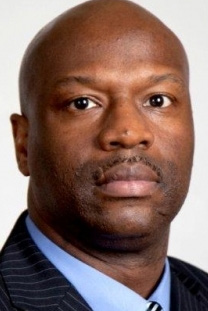FSU, FAMU and TCC join force to help curb city crime
By St. Clair Murraine
Outlook staff writer
Tallahassee Police Department and Leon County Sheriff have been making an added push lately to tackle criminal activities in the city and county after a recent FDLE report ranked crime in the area as highest in the state.
The two law enforcement agencies aren’t going at it alone, though. The city’s two universities and Tallahassee Community College are lending a hand. The heads of the police departments at FSU, FAMU, and TCC say they are helping by taking proactive measures to curtail crime on their campuses.
“While we can’t prevent all things from happening, we are prepared,” said Greg Gibson, a veteran in law enforcement who has been TCC’s police chief for four months. “We are always training to be well prepared and we are always reminding ourselves how important vigilance is for response in a serious situation.”
The campus police chiefs were asked to respond to city commissioner Curtis Richardson’s concern over how the city’s crime rate could affect enrollment at the three schools. Richardson expressed his concern during a recent update on crime given by TPD chief Michael DeLeo at a City Commission meeting.
Richardson’s concern doesn’t surprise FAMU student George Byford Jr., who said he recently completed a paper on college campus crimes. His research showed that assaults rank higher than he expected, he said.
“Whenever you get a concentration of a big group of people, you’re bound to have bad apples,” he said. “That’s the way I look at it. It’s a large concentration of students from different backgrounds and everybody wasn’t raised the same.”
The report on the city’s crime rate didn’t breakdown what crimes are committed on college campuses. However, DeLeo reminded commissioners that crime at the schools is a part of the city’s statistics.
Statewide, crime dropped more than 4 percent.
According to the FDLE report crime dropped 4 percent statewide, however, in Leon County, the crime rate increased almost 7 percent.
FDLE reported that crime was 5,655.4 per 100,000 residents.
“We are a microcosm of what happens in the city,” said FSU Assistant Vice President for Public Safety and Chief of Police David Perry. “Maybe not with the high level frequency.”
An Outlook survey of students at FAMU and FSU showed that while they know about crime on campus, they didn’t know that those illegal activities add to the city’s statistics. Colleges and universities, however, are required by the Jeanne Clery Act to report the number of crimes on campus annually.
Florida also has a similar mandate.
FSU had an uptick of 33 percent in crime over last year, although most are minor. According to Collegefactual.com, FSU’s on campus violent and property crimes is on par with the national average.
There was one arrest for drug violation in 2015, according to TCC’s report. Domestic violence is the highest, although those cases were reduced from nine in 2014 to six in 2015.
FAMU’s police chief Terence Holloway reported a 50 percent drop in campus crime over the last two years.
Meanwhile, the schools have reported that enrollment is up. Law enforcement authorities have indicated that the more students on campus generally make the school ripe for criminal activities.
Students being vigilant is an effective way to keep down the crime rate on each campus, the chiefs at the three schools said.
“While we can’t prevent all things from happening, we are prepared,” said Greg Gibbs, TCC’s chief of police. “We are always training to be well prepared and we are always reminding ourselves how important vigilance is for response in a serious situation.”
Holloway, who has been in-charge of law enforcement at FAMU for just two years said several measures have been put in place for students’ protection.
Joseph David, a FSU student, said he doesn’t feel unsafe on campus because of constant presence of police officers.
“I’ve been here at nights and on weekends,” said David. “I’ve always felt safe walking around. I’ve never felt concerned.”
The three campuses have used many of the same measures — visible police presence, security cameras and text alerts to inform students when there’s crime on campus or even in near-by areas. FAMU also uses an escort driver for added safety, Holloway said.
Students are paid to chauffer their peers who might be traveling on campus at nights, he said, calling the plan very effective.
“It eliminates the potential of having someone doing something to a student in terms of robbery, sexual assault, the whole nine,” Holloway said. “This program has worked out tremendously for us.”
All three police chiefs said they have an information-sharing relationship with TPD and the Sheriff. In part the idea is to make sure criminals don’t seek refuge on any of the campuses.
“We know that criminals don’t know geographical boundaries,” said Perry.
Like DeLeo told the commission, Perry said solving crime will take the engagement of the community at large.
“The clergy, parents and other people of community,” he said. “It’s all these concentric circles that connect to help us solve this crime problem, but the police can’t do it alone.
“We don’t talk about it. We just go out and do it. Whenever things happen, we try to get to the bottom of the situation as quickly as we can.”










